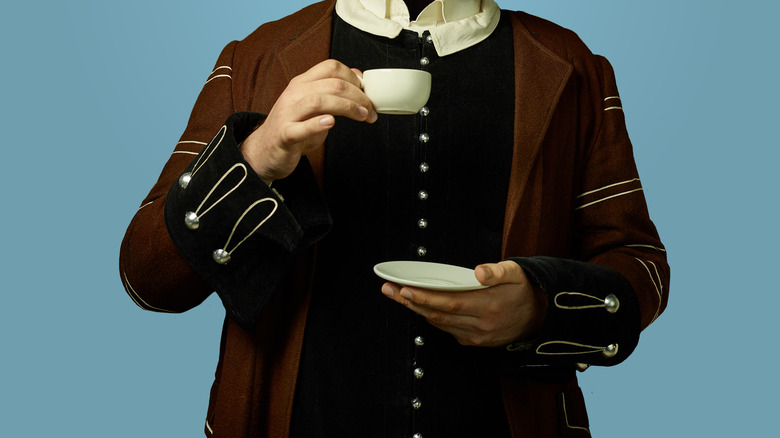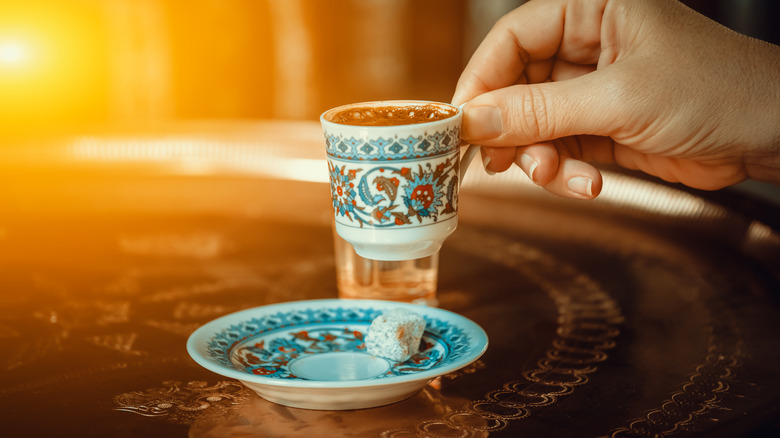Despite Declaring It 'Satan's Drink' Pope Clement VIII Loved Coffee
If you've uttered the phrase, "Don't talk to me until I've had my coffee," you might be onto something. Frank Hu, chair of the Department of Nutrition at the Harvard T.H. Chan School of Public Health, says, "The overall evidence has been pretty convincing that coffee has been more healthful than harmful in terms of health outcomes." Two-to-five cups a day, says Hu, may lower the risk for heart disease, depression, liver cancer, and type 2 diabetes. But critics had a very different opinion of the stuff in the past. Coffee has been banned more than a few times throughout history by folks who believed it caused people to act out, become impotent, and instigate societal decay.
Sultan Murad IV of the Ottoman Empire considered coffee drinking an offense punishable by death, states NPR. He would even act as a plainclothes mercenary and skulk Turkish streets, waiting to catch somebody sipping a hot cuppa joe and thwack their head off with the sword on his hip. In mid-1700s Sweden, explains Mental Floss, King Gustav III punished criminals by making them drink coffee until they died while forcing doctors to monitor how long it took for that to happen.
One 17th-century winemaker, threatened by coffee's increasing popularity, penned the essay, "Whether the Use of Coffee Is Harmful to the Inhabitants of Marseilles," via Insider. The verdict? "Yes," because (get this) the burnt particles in coffee dry up your organs, allegedly causing permanent full-body paralysis. But Pope Clement VIII begged to differ.
Coffee, coffee everywhere and not a drop to drink
Many cultures banned coffee because it was considered a drug — which isn't entirely unsound. According to one study released by the National Center for Biotechnology Information, caffeine is the most widely-used psychoactive drug globally. Some of its effects, reports the study, are even comparable to cocaine.
Stewart Allen, author of "The Devil's Cup: Coffee, the Driving Force in History," says even the coffee-drinking environment scared some political leaders. "People drinking alcohol would just get drunk and sing and be jolly, whereas the people drinking coffee remained sober and plotted against the government," said Allen, via NPR. After all, the French Revolution was plotted in coffeehouses, explains Insider.
In 1535, critics in Cairo tried to make coffee drinking a religious offense, arguing that caffeine jitters counted as "drunkenness" forbidden by Muslim law, via Insider. Similarly, when coffee arrived on 16th-century Italian shores, states Mental Floss, clergymen called it "Satanic." But Pope Clement VIII had a different opinion. After taking a sip, he allegedly said: "Why, this Satan's drink is so delicious that it would be a pity to let the infidels have exclusive use of it," via NPR. The Papal Contrarian suggested that coffee be baptized so the public could enjoy it guilt-free.
If you or anyone you know needs help with addiction issues, help is available. Visit the Substance Abuse and Mental Health Services Administration website or contact SAMHSA's National Helpline at 1-800-662-HELP (4357).

